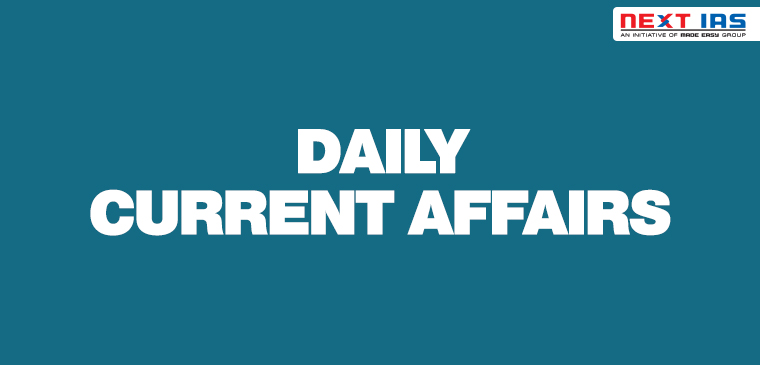
In News
Recently, the Global Health Summit has been organised by Italy in its role as President of the G20.
About the Summit
- It has been organised in partnership with the European Commission.
- The European Commission is the executive branch of the European Union (EU).
- It is responsible for proposing legislation, implementing decisions, upholding the EU treaties and managing the day-to-day business of the EU.
- It highlighted and appreciated the international scientific collaboration as one of the factors behind the rapid development of Covid-19 vaccines.
- Covid-19 vaccines are the product of complex supply chains, which span many countries, each of which is based on its own industrial capacity and expertise.
- Appreciated the Steps Taken
- Access to Covid-19 Tools (ACT) Accelerator
- It was launched in April 2020 in response to the G20’s call for a global mechanism to accelerate the development of tests, treatments and vaccines and to ensure their equitable distribution.
- Hosted by the World Health Organization (WHO), it offers the only end-to-end multilateral solution to speeding up an end to the acute phase of the Covid-19 pandemic.
- It comprises four pillars: Diagnostics, therapeutics, vaccines and health system strengthening.
- COVAX Facility
- It is co-led by the Coalition for Epidemic Preparedness Innovations (CEPI), the Global Alliance for Vaccines and Immunisation (GAVI) and the WHO.
- It aims to accelerate the development and manufacture of Covid-19 vaccines and guarantee fair and equitable access for every country.
- It has already distributed vaccines to more than a hundred countries.
- 2021: Year of Health and Care Workers
- Countries welcomed the WHO designation of 2021 as the Year of Health and Care Workers and reaffirmed full support for the leading and coordinating role of the WHO in the Covid-19 response and the broader global health agenda.
- Access to Covid-19 Tools (ACT) Accelerator
- Major Concerns Highlighted
- As long as the virus continues to circulate freely worldwide, it can mutate and undermine even the most successful vaccination campaign.
- The problem of uneven vaccination has become more acute and vaccine nationalism is rising.
- The developed countries like the US are stockpiling doses, with their number exceeding the actual need of their citizens.
- On the other hand, medium- and low-income countries are facing a scarcity of vaccines and medical facilities, along with the raging second wave.
- Suggestions
- The free flow of raw materials and vaccines across borders is essential.
- It is important to strengthen the role of multilateral institutions in global health and beyond, starting with the WHO, which needs to be provided with sustainable and predictable funding in order to become more effective.
- It is crucial to ensure that an effective early warning system is in place and that governments can quickly share their best practices to prevent, contain and manage a pandemic.
- There is a need for better data sharing and greater knowledge transfers to enable widespread and equitable distribution of the fruits of innovation.
- Cross-border trade should be preserved, along with eliminating unjustified trade barriers and export bans.
- The developed countries should immediately lift export restrictions and increase supply to make up for the shortfall in developing countries.
- Countries should reject vaccine nationalism and find solutions to issues concerning the production capacity and distribution of vaccines, in order to make vaccines more accessible and affordable.
- The International Monetary Fund (IMF) laid out a pragmatic action with three broad elements, which would cost around USD 50 billion in a combination of grants, national government resources and concessional financing. These elements are
- Vaccinating at least 40 per cent of the global population by end-2021 and at least 60 per cent by the first half of 2022.
- Insuring against downside risks such as new variants that may necessitate booster shots.
- Managing the interim period where vaccine supply is limited with widespread testing and tracing, therapeutic and public health measures.
- All participants announced additional pledges aimed at guaranteeing a forceful and coordinated response to the pandemic.
- The event ended with the signing of the Rome Declaration and the participants committed to promote and make tangible progress towards the principles of the declaration.
Pledged Contributions
- Pharmaceutical Companies
- Pfizer, Moderna and Johnson & Johnson pledged to provide vaccines to low-income countries at production cost and middle income countries at low cost.
- This includes one billion doses from Pfizer, 200 million from Johnson & Johnson and 100 million from Moderna.
- Most of these doses will be delivered through the COVAX facility.
- European Union
- It will donate 100 million doses to low and middle income countries by the end of 2021.
- Italy
- It has pledged a new donation of 15 million doses of vaccines to low-income countries before the end of 2021.
- It also announced a pledge of an additional 300 million euros for equitable distribution of vaccines.
- China
- It has pledged an additional USD 3 billion in aid over the next three years for developing countries to assist their Covid-19 responses.
- It also suggested setting up a global forum on vaccines to ensure equitable distribution.
Rome Declaration
- It sets out a series of mutual reinforcing principles and commitments that will guarantee improved preparedness, a coordinated response, resilience to and recovery from the Covid-19 pandemic and for future health emergencies.
- It recognised the damaging impact of the pandemic on progress towards achieving the Sustainable Development Goals (SDG) and reaffirmed commitment to the United Nations General Assembly (UNGA) resolution of September 2020 and to the International Health Regulations (IHR) 2005, which together will improve resilience and global health outcomes.
- Participants committed to promote and make tangible progress towards these principles and the action they guide by the G20 Summit, to be held in Rome in October 2021.
|
G20
|
Source: TH
Previous article
Increased FDI in India
Next article
Facts in News







